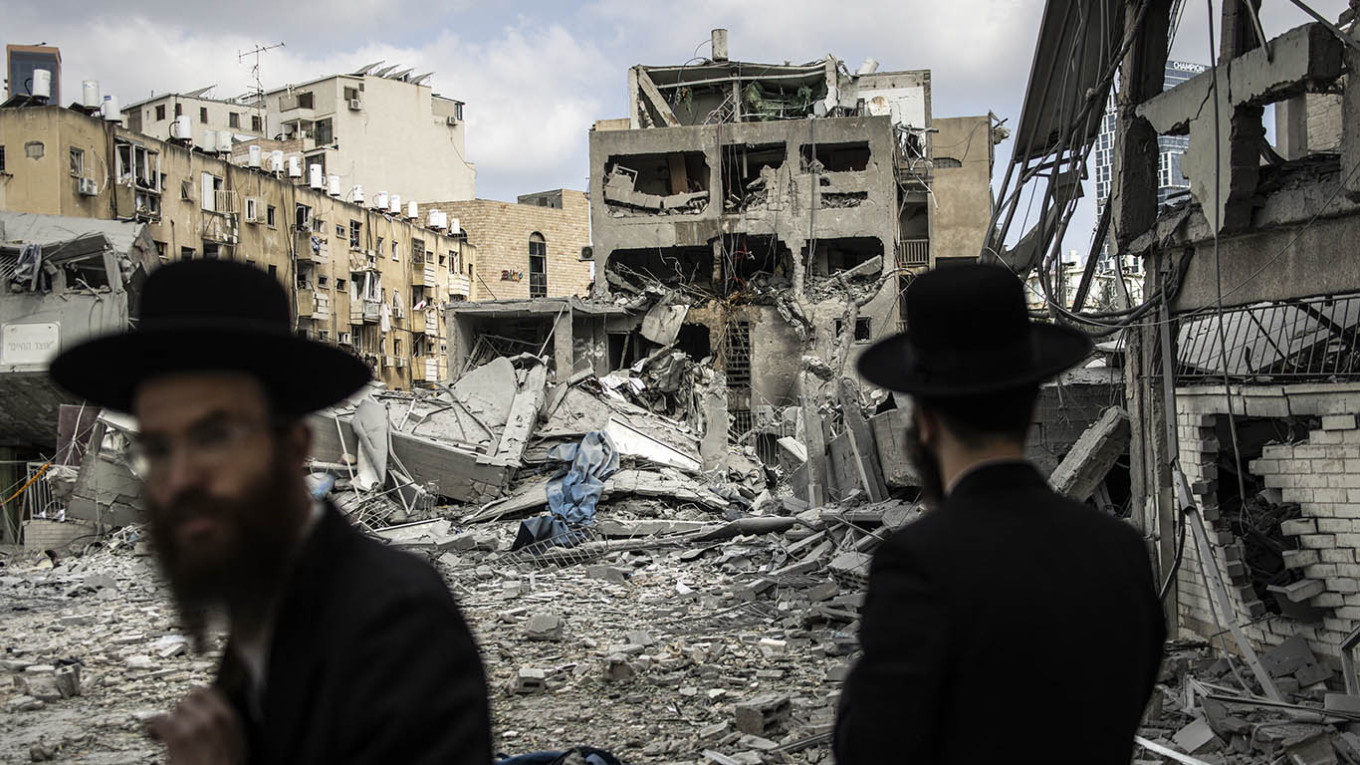The conflict between Israel and Iran has shown no signs of resolution as it entered its fourth day on Monday, with both nations continuing to launch rockets and drones, resulting in the deaths of hundreds of civilians.
In light of the escalating tensions, Russia’s Foreign Ministry has urged its citizens to leave both Iran and Israel.
Given Russia’s established relations with both countries, there are lingering questions regarding its potential involvement in the conflict.
In April, Moscow ratified a strategic partnership agreement with Iran that aims to address mutual threats but stops short of establishing a military alliance between the two nations.
“The signing of this treaty does not signify the formation of a military alliance with Iran or mutual military support,” said Russian Deputy Foreign Minister Andrei Rudenko when addressing the State Duma.
So how might Russia provide assistance to Iran?
Hanna Notte, an expert on Russia and the Middle East at the Center for Nonproliferation Studies, mentioned on X that Russia is likely to engage through international organizations, such as the UN Security Council and the International Atomic Energy Agency (IAEA).
Notte also indicated that Russia would probably continue its attempts to act as a mediator in the conflict, driven by its ambition to remain an influential participant in regional and global matters. On Friday, Vladimir Putin proposed Russia as a mediator in his conversation with Israeli Prime Minister Benjamin Netanyahu.
However, Notte noted in Foreign Affairs earlier this year that achieving diplomatic success is far from certain. “The volatility in the Middle East has proven too intense and unpredictable for Moscow to reliably guide in a favorable direction.”
Ruslan Suleymanov, a non-resident research fellow at the Institute for Development and Diplomacy at ADA University in Baku, echoed these views.
“Russia’s credibility in the area was undermined last year when Putin demonstrated his limitations by failing to support Bashar al-Assad against jihadists. Putin has made it clear that he is no longer a dependable ally,” Suleymanov commented to The Moscow Times.
“Practically, Russia could support Iran in the UN Security Council, for example. There is no military commitment involved,” he added.
One aspect where Russia likely doesn’t face concerns is in its acquisition of Iranian-designed Shahed drones, which it deploys in its attacks on Ukraine.
Nicole Grajewski, a nuclear policy expert at the Carnegie Endowment for International Peace who specializes in Russian and Iranian relations, informed The Telegraph that Moscow can now produce up to 2,700 drones per month independently, a significant increase from its earlier reliance on Iranian support during the initial years of its invasion of Ukraine.
According to Suleymanov, the intensifying conflict is not expected to adversely impact Russia’s relationship with Israel, despite Moscow’s strategic partnership with Iran and its criticism of Israeli airstrikes.
“Despite numerous issues and disagreements, Moscow still sees value in its relationship with Israel,” he stated.
Marianna Belenkaya, a Russian expert on the Middle East and a former commentator for RIA Novosti, also believes that the dynamics between Russia and Israel are complex and not simply defined by their differing positions.
For instance, she pointed out that the two nations have maintained stable relations even as Russia has increased its engagement with Hamas in recent years.
“Israel did not cut ties with Russia or impose sanctions on it,” she noted. “Therefore, I expect cooperation will persist as it has for the time being.”
Belenkaya also expressed skepticism that “Russia is particularly worried about Iran’s nuclear ambitions.”
A prolonged conflict between Iran and Israel could lead to a surge in global energy prices, offering a temporary boost to Russia’s budget. Difficulties in negotiating the Iranian nuclear deal might also work to Moscow’s advantage by delaying the entry of Iranian oil and gas into international markets, especially in Europe.
The heightening tensions between Iran and Israel caused the benchmark Brent crude oil price to rise nearly 10% on Monday compared to the previous week, climbing from $67 to $73.60 per barrel.
Israeli airstrikes aimed at Iranian energy infrastructure, including gas processing facilities, could restrict Iran’s oil and gas production, which primarily services neighboring countries like Turkey and Iraq, as well as China.
While Iran’s contribution to global energy exports is relatively modest, any significant reduction in its supply could still have an impact on global oil prices.
According to the U.S. Energy Information Administration, Iran produced approximately four million barrels of oil per day in 2023, with exports averaging 1.5 million barrels per day in 2024. Last year, Iranian oil exports constituted only 3.6% of the total global volume.
Traders’ apprehensions are driven not only by Israeli attacks on Iran but also by the risk of broader regional escalation, which could disrupt shipping routes and affect energy supplies and trade.
Nevertheless, for the Russian economy, which relies on oil and gas revenues as sources of foreign currency and government tax income, the conflict may offer some short-term benefits. Supply disruptions could increase Russian oil income.
The significance of Iran’s share in global oil exports is considerable enough that even a halving of its shipments could substantially elevate oil prices, according to Russian energy analyst Igor Yushkov.
China may seek out Russian oil in response to a decline in Iranian supplies, especially since Russia’s oil and gas revenues have been dwindling due to sanctions and the looming threat of a global economic downturn.
A prolonged conflict could also delay negotiations on the Iranian nuclear program, which might have led to lifting the energy embargo on Tehran and allowing it to supply oil and gas to the European market.
However, many analysts doubt that a sizable disruption in the energy markets will occur.
Analysts from Russian PSB bank have indicated that the situation in the Middle East is unlikely to result in a “serious disruption” or the “closure of key international shipping routes like the Strait of Hormuz, implying that any price increases are likely to be temporary.”
Their analysis suggested that Brent oil prices will likely revert to the $60-$65 per barrel range.
Similarly, energy analyst Kirill Rodionov predicted that any rise in oil prices would be fleeting due to the substantial excess production capacity in the Middle East, which exceeds four million barrels per day, thereby outpacing Iran’s production capacity.

